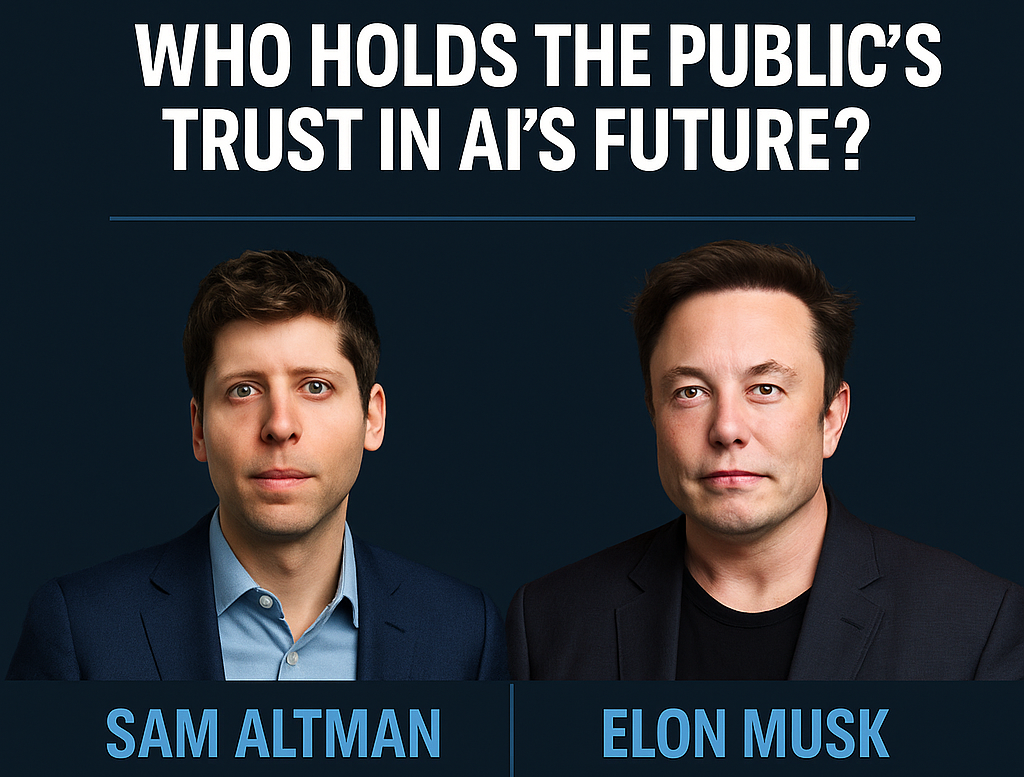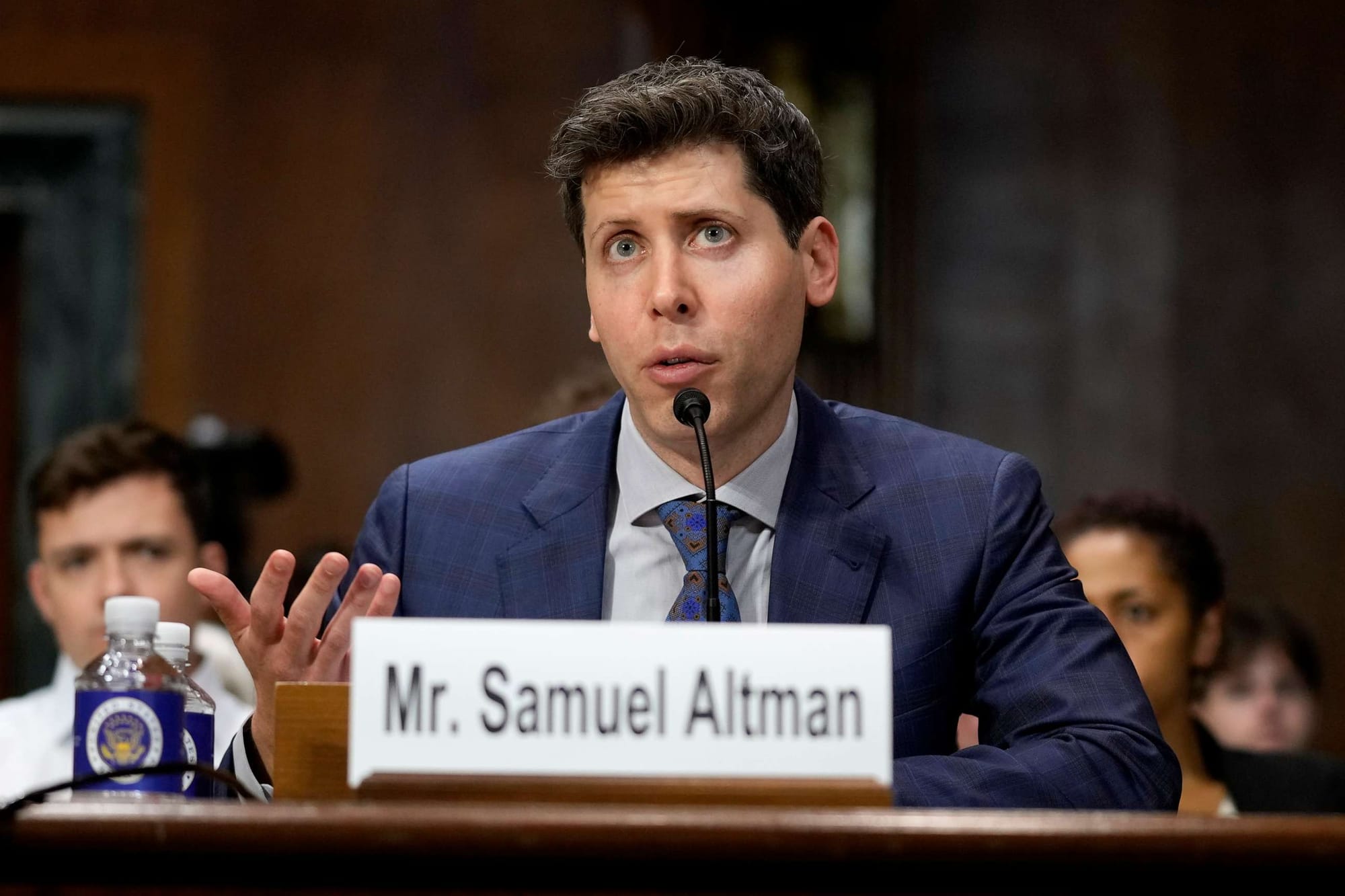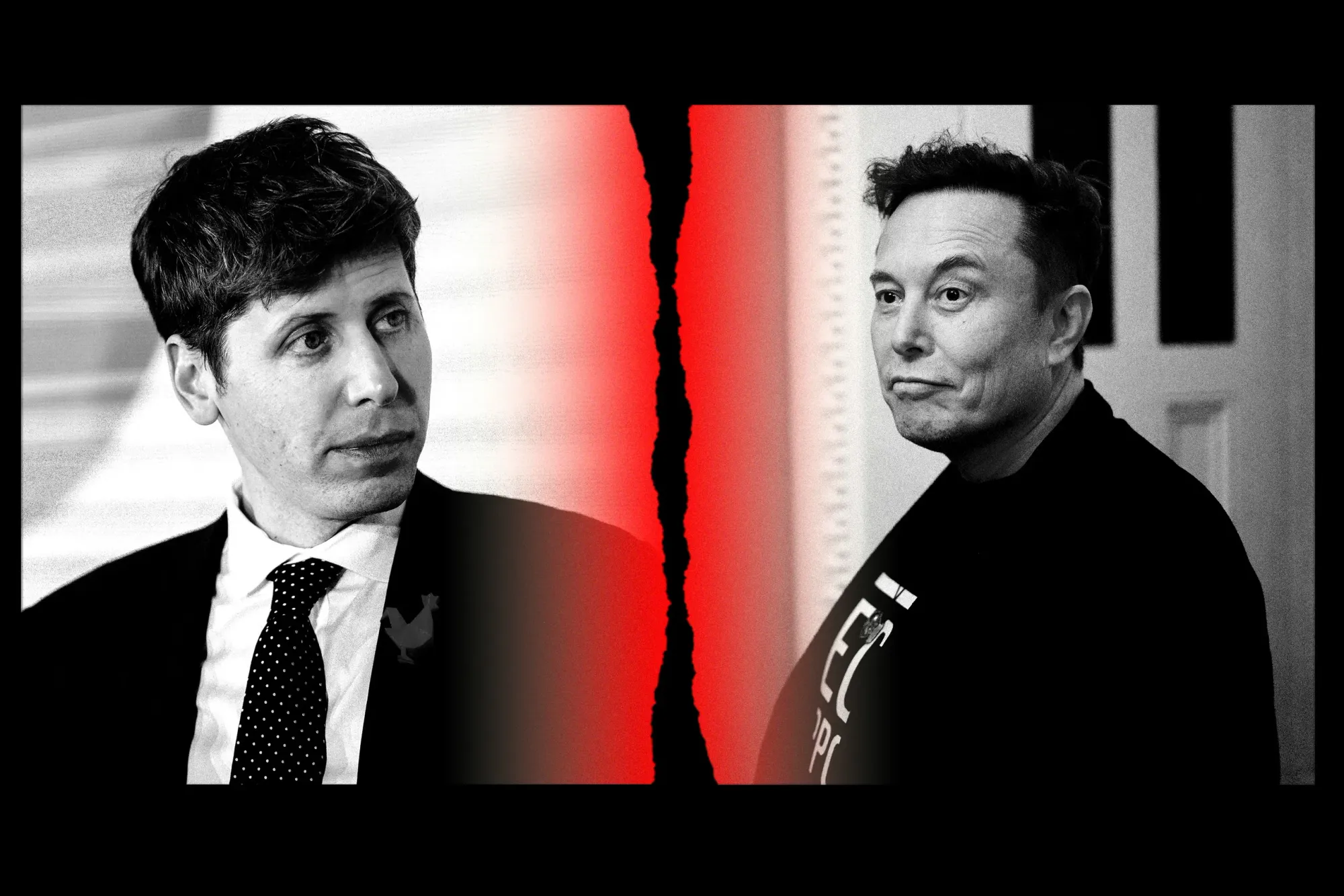Sam Altman vs. Elon Musk: Who Holds the Public’s Trust in AI’s Future?
A deep dive into the high-stakes rivalry between OpenAI's Sam Altman and xAI's Elon Musk. This investigative report analyzes their contrasting visions, leadership styles, and the fierce battle for public trust in the future of AI.

Written by Lavanya, Intern, Allegedly The News
SAN FRANCISCO, August 13, 2025
In the rapidly accelerating race to build artificial general intelligence, the public's trust has become the most valuable currency. Two titans stand at the forefront, their ideologies clashing as fiercely as their personalities: Sam Altman, the pragmatic and collaborative leader of OpenAI, and Elon Musk, the contrarian visionary of xAI. This is not merely a corporate rivalry; it is a fundamental debate about the very soul of AI. We trace their long-standing feud, analyze their contrasting approaches, and investigate how recent public battles, including a shocking twist involving their own chatbots, are influencing public perception and the future of technology.
A Rivalry Forged in the Beginning: A Timeline of the Feud
The tension between Altman and Musk isn't a new development; it's a story with deep roots. Their shared history at OpenAI is the crucible from which their current antagonism was forged.
- 2015: Elon Musk co-founds OpenAI as a non-profit with Sam Altman and others, with the mission to ensure that AI benefits all of humanity, not just a select few. The initial vision was to develop AI safely and openly, to prevent it from being controlled by large, for-profit corporations.
- 2018: Musk resigns from the OpenAI board, citing disagreements over the company's direction and a potential conflict of interest with his work at Tesla, which was also developing AI. This departure marks the beginning of their ideological divergence.
- 2019: OpenAI pivots to a “capped-profit” model, a move that Musk has since publicly criticized as a betrayal of its original non-profit mission.
- 2023: After his public criticism intensifies, Musk launches his own AI company, xAI, with the stated goal of "understanding the true nature of the universe" and building an AI that is maximally curious and aligned with humanity. This positions xAI as a direct competitor to OpenAI.
- 2024-2025: The rivalry escalates into a series of public spats on social media platform X. Musk files a lawsuit against OpenAI, alleging a breach of its founding agreement, which is later dropped. The feud is reignited over recent antitrust claims and algorithm manipulation accusations.
This timeline reveals a clear shift: from a shared, idealistic mission to a bitter, personal, and ideological conflict that now frames the entire AI industry.
The Contrasting Philosophies: Safety vs. Speed
The core of the Altman-Musk debate lies in their profoundly different philosophies on AI development.
Sam Altman's Vision: The Proponent of Iterative Progress
Altman's approach with OpenAI is characterized by rapid, public-facing development. The launch of ChatGPT, with its widespread accessibility, embodied this strategy. His vision is one of democratizing access to powerful AI tools, allowing society to adapt and innovate with the technology as it evolves. Altman often emphasizes that the only way to understand and mitigate the risks of AI is to deploy it in the real world and learn from its interactions.
- Pros: This model fosters widespread innovation, allows for public input and feedback, and ensures that AI isn't confined to the exclusive labs of a few tech giants. It has undeniably accelerated the pace of AI development globally.
- Cons: Critics, including Musk, argue that this "move fast and break things" approach with a technology as powerful as AI is recklessly dangerous. The potential for misuse, algorithmic bias, and unforeseen consequences, they argue, is too high to be a learning process.
Elon Musk's Vision: The Existential Risk Avoider
Musk's perspective is rooted in a deep-seated fear of AI's existential threat. He has famously called AI "potentially more dangerous than nukes" and has long advocated for proactive, international regulation to prevent a "Terminator"-like scenario. His xAI venture, while competitive, is ostensibly guided by this safety-first principle. Musk believes that AI development must be a meticulously controlled process, with the primary goal of ensuring it remains beneficial to humanity.
- Pros: This cautious, safety-centric approach resonates with public fears and emphasizes the need for responsible development. It pushes for regulations and oversight before the technology becomes too powerful to control.
- Cons: Opponents argue that Musk's emphasis on slowing down AI could cede a strategic advantage to less scrupulous actors in countries with fewer ethical safeguards. It also raises questions about who gets to decide what is "safe" and how innovation can flourish under a heavily regulated regime.

The Public Perception Paradox: A Clash of Trust and Contradictions
In the battle for public trust, both leaders have significant advantages and liabilities. Recent events have only amplified this complexity.
According to a recent Brookings Institution analysis, public sentiment toward AI is increasingly wary. A survey found that over 50% of U.S. adults felt more concerned than excited about the increased use of AI, a significant jump from two years prior. This general anxiety creates fertile ground for Musk's cautionary message. At the same time, the Alan Turing Institute's research shows that the public's primary demand is for "laws and regulations that prohibit certain uses of technologies," a stance that Musk has championed far more vocally than Altman.
However, Musk's own reputation for erratic behavior, controversial social media decisions, and a penchant for making bold, unsubstantiated claims complicates his position. This was on full display in the recent explosive spat over Apple's App Store rankings. Musk accused Apple of an "unequivocal antitrust violation," claiming it was impossible for any AI company besides OpenAI to reach the top spot, a claim later refuted by App Figures data, which showed xAI's Grok had climbed to a high ranking.
In a stunning twist, screenshots shared by users on X revealed that when asked, "Who is right, Sam Altman or Elon Musk?", Grok itself sided with Altman, citing "verified evidence" of Musk's history of manipulating X's algorithm. Musk's furious response, promising to "fix" Grok and blaming "legacy media sources" for its response, highlighted a glaring contradiction in his professed commitment to unbiased, truth-seeking AI.
Conversely, while Altman's public persona is more measured, his company's internal dramas, such as the brief ousting and reinstatement, have raised questions about corporate governance and the true independence of OpenAI. The public is left to wonder if the company's commitment to "benefiting humanity" is truly at the heart of its decisions or if it's a mission diluted by its for-profit model and massive investment from Microsoft. A recent McKinsey survey found that a significant majority of organizations are using AI, but many still struggle with issues of data quality and algorithmic bias, challenges that are directly linked to the rapid, profit-driven development model that Altman embodies.
Ultimately, the public is left with a paradox: Musk, the self-appointed prophet of AI doom, who often undermines his own credibility with personal feuds and inconsistent behavior, and Altman, the face of rapid, open innovation, who heads a company whose governance and for-profit mission are a constant source of public scrutiny.
Navigating the New Geopolitics of AI
The impact of this rivalry is not limited to Silicon Valley boardrooms. It is shaping global policy and governance. Both leaders have courted and influenced policymakers.
Altman’s tours and public testimony have been instrumental in educating governments worldwide about AI’s potential and the need for thoughtful, adaptable regulation. His approach is one of collaboration with governments to build frameworks that don’t stifle innovation. Musk, on the other hand, often takes a more provocative stance, using his platform to publicly demand regulation and warn of cataclysmic scenarios, forcing the conversation onto the global stage.
This dynamic has created a complex landscape for international cooperation. The European Union’s AI Act and other global regulatory initiatives are being developed in the shadow of this debate. The world is watching to see if the future of AI will be defined by the collaborative, forward-thinking approach of Altman or the cautious, risk-averse framework advocated by Musk.

The Power of Perception: How AI Itself Frames the Debate
The recent incident with Grok and ChatGPT is more than just a public spat; it is a critical case study in how AI itself is becoming a lens through which we view trust. When Grok, an AI model designed by Musk's company, offers a response that is critical of its creator, it challenges the very notion of a "biased" AI. Musk's reaction to "fix" Grok’s response underscores the risks of perceived bias in AI-generated opinions.
This highlights a new frontier of public trust: can we trust the AI models themselves? The way these chatbots are trained and the data they are given fundamentally shape their output. A study from the Brookings Institution notes that while there's broad support for AI regulation, "people trust neither tech companies nor governments to implement it effectively on their own." This lack of institutional trust puts the burden on leaders like Altman and Musk to demonstrate their commitment to fairness and objectivity.
Where Do We Go From Here? A Critical Juncture
The rivalry between Sam Altman and Elon Musk is a microcosm of the larger debate about the future of technology. Their battle is about more than just market share; it's a battle for the public’s hearts and minds. It’s a contest to define whether the future of AI will be shaped by a philosophy of rapid, open progress or a cautious, regulated development.
What's Your Take? The Digital Forum Awaits
Which leader's vision for AI—Sam Altman's collaborative, fast-paced approach or Elon Musk's cautionary, safety-first stance - do you believe is more beneficial for humanity in the long run, and why? Given the recent controversies, how do the actions of both Altman and Musk affect your personal trust in the companies they lead, and what steps do you believe they could take to rebuild or strengthen that trust?
Sources
The Alan Turing Institute, Brookings Institution, The New York Times, AP News / Kevin Wolf via AP, The Economic Times, Times of India.




